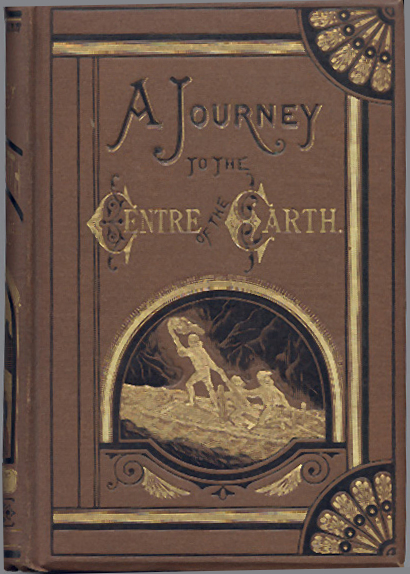Writing the future: A timeline of science fiction literature

From Gulliver’s Travels, through Brave New World and the Hitchhikers Guide to the Galaxy, this timeline explores the evolution of the science fiction novel.
Read more here.
The Eyre Affair and Lost in a Good Book by Jasper Fforde
I always intended to review these two books (I’ll do them together, since it’s series), but I had a feeling I hadn’t done it yet and I was right.
So, here goes.
I love this series of books, even though I have only read the first two books so far. Hopefully, I’ll soon be able to read more.
This ‘universe’ is absolutely wonderful. I’ll just mention a few fantastic aspects of it:
Literature, books and authors are taken very seriously. There are gangs that clash because they favour two different authors, like football hooligans. The police has a special department (a huge one) that deals with literary fraud. Classic theatre is also huge – they have fan plays, played by fans who love the play and the shows run for years on end.
There’s time travel and the plots deal with time paradoxes.
Some lucky people can enter a book (the plot, not merely the physical copy) and visit or live out their lives in between the major plot points.
However, there are few things that I don’t love quite as much. For instance, there are vampires and werewolves. Not my thing at all.
The main character, Tuesday Next, is – well, to be honest, before I really got into the book, I automatically assumed she was a guy. She doesn’t come across as a female character.
Not that any of this takes away from the enjoyment of the books.
Some people find it hard to classify exactly what genre these books belong to. To some it seems to be a weird sort of mystery, others see it as fantasy or science fiction. I was a bit concerned about the style – in some cases, where books are very hyped and seem to belong to a special or different sort of genre, I have actually hated the writing – such as the Lemony Snicket series. But this, really works. Even though there’s a sort of literary or fandom-related reference in almost every sentence, it never bothers the flow of the plot. If I get it (I don’t get all of them, I think) I love them. But the plot still moves at a fast pace.
My advice is that if you think you might enjoy this type of book, try to read an excerpt on Amazon or wherever you usually buy your books. If you like the first chapter, you’ll love the rest of it too. I imagine that most book lovers would, but it’s actually quite hard to tell. Since I joined the specific book sites online, I’ve come across many people who love books as much as I do, but still love completely different genres or writing styles, so apparently there’s a huge difference between one book lover and another.
In any case, I love these books, so if you have liked my other reviews, you might enjoy this series too, that’s my best guess.
10 of the Best Books about Literature
10 great books for literature-lovers, from surveys of English literature to treasure-troves of trivia
Read more here.
My Swedish book collection
I have decided that I will make a point of buying books in my own language (Swedish). It’s not that easy anymore. When I was a child, I was given plenty of great books on birthdays and Christmas. My mum had bought me so many books, before I could even read, so I had a head start on my Swedish book collection. These days I struggle to find good books in Swedish. The ‘toplist’ is artificially made up by the big publishers. It no longer consists of the best selling books, but the ones the publishers would like to sell best. And apparently, their criteria for publishing a book is not quality, it’s saleability.
However, I’m doing my best looking for Swedish children’s and YA books, non fiction and – naturally – fantasy, science fiction and mysteries. They’re usually more expensive than books in English, naturally enough, since the editions are much smaller. I usually can’t find books of the very highest quality either. It’s sad, but true. But I really want to have a Swedish book collection so it’s going to be worth it in the end. I also want to have smaller collections of French and German books, maybe others too. Fortunately, those aren’t usually that much more expensive than English/American books. Clearly, French and German are big enough languages to produce large enough editions of every title.
My ‘policy’ when it comes to book buying is to, as far as possible, get books in the original language, and if I can’t read the original language, the one I know best. I’ll make an exception if the Swedish translation is far less expensive than the original. Some years ago, there was this Chinese book I really wanted to read. Naturally, I can’t read any Chinese language, so I looked around for an English translation (unsurprisingly there wasn’t one in Swedish), but there wasn’t one. Fortunately, there was one in French, so I bought that.
The Twelve Best Facts from a Year of Interesting Literature | Interesting Literature
Read more here.
A transmitted disease…
“Literature is a textually transmitted disease, normally contracted in childhood.”
– Jane Yolen
The 25 Best Websites for Literature Lovers
…the literary world occupies a decent-sized space on the web. Readers, writers, publishers, editors, and everybody in between are tweeting, Tumbling, blogging, and probably even Vine-ing about their favorite books.
Read more here.
Some vegan books
I found these links to books about vegans and/or veganism, that includes fiction about vegans. It’s something I’ve been looking for for quite a while and though I haven’t had time to check them out in detail, I think it’s a really great start. Hopefully I’ll find something I’ll like here.
Fiction with Vegan and AR sensibilities
Language: Spanish and Portuguese
My next language was Spanish. Just like French, it was quite easy to learn. It’s quite similar to latin, which was, in a way, the English of ancient times. In Europe, it’s mostly spoken in Spain. Some people say that it’s also spoken in Andorra (but I think that’s because many Spaniards live there). Spanish is also spoken in North Africa and in the Philippines, and naturally in South America (also known as Latin America – in Mexico, Central America, some islands in the Caribbean).
According to some estimates, Spanish – or as people speaking the language outside Spain like to call it – Castilian – Castellano, is spoken by about 250 million people. That’s in no way an exact figure, but what you can be sure of is that spanish is a language that is good to know. It’s probably right behind English as ‘the most useful language in the world’. Though some people say that about French.
Here are some books that you might want to read: Gabriel Garcia Marquez has written several good books. So far I haven’t managed to read any of them in the original language, but I will, as soon as I can. Especially One Hundred Years of Solitude. I have read Love in the Time of Cholera, and with a few exceptions, it was really interesting. Unfortunately, that wasn’t in Spanish.
In Latin American literature the so called magical realism is typical. If I’ve understood it correctly, it means that the stories are a bit like fantasy or fairy tales. Many people recommend Isabel Allende’s book, The House of Spirits. I haven’t read it myself, not even in other languages, but it’s supposed to be good.
Since I’ve studied Spanish and Italian, I’d like to learn some Portuguese as well. Portugal is a fairly small country, but Portuguese is also spoken in Brazil. Also in a couple of countries in Africa, and in Asia – Macao. Portugal was, like Spain, the Netherlands, England and France good at colonizing and winning wars. Portuguese is spoken by about 10 million people in Portugal, and nearly 180 million people in Brazil. That adds up to about 200 million people worldwide.


